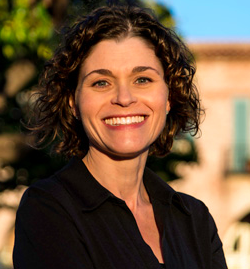Last Updated on June 26, 2022 by Laura Turner
By Michelle Finkel, MD
Whether you are a candidate for medical school, residency, fellowship, dental school, or post baccalaureate programs, you will cringe when you read the following true story: A well-meaning candidate I know was applying to residency programs in internal medicine, only to have one of his faculty supporters note repeatedly in her letter of recommendation (LOR) that the applicant would be a great surgeon. In one stroke, the candidate’s application was squashed. How could the letter writer be taken seriously if she did not even know the applicant’s career plans? Or perhaps the candidate was applying in several fields, a somewhat common tactical approach that can, understandably, make informed residency directors question commitment to a field. In this case, an otherwise solid candidate appeared scattered when his letter writer was disorganized. As an applicant, you are expected to prepare all aspects of your application—including managing your letter writers.
As a Harvard Assistant Residency Director, I saw my fair share of LORs. I learned how mediocre, misinformed (as in the above anecdote), or frankly bad letters are at best a lost opportunity, at worst a fast and easy way to undermine your application. Procuring strong, precise LORs for medical school, residency, fellowship, other health professional schools, and post baccalaurate programs is dependent on several factors:
1. Following directions
2. Choosing the best writers
3. Influencing the content of your letter.
Let’s take a closer look at each of these aspects.
Following Directions
Most residency and fellowship programs use ERAS and follow consistent rules for LORs with space for four potential letters per program. It’s important to pick relevant fields; getting three psychiatry letters for your urology application will look odd. It’s also typically strategic to ensure you have multiple letters from your chosen field if it is a very competitive one.
Unlike residency and fellowship, medical schools, dental schools, and post baccaclaureate programs can have varying requirements when it comes to your letters. To save time and effort, both your own and (theme alert!) your writer’s, start by checking online to confirm you will meet the varied requirements of different institutions.
Some medical schools require at least two science professors and one non-science professor to submit LORs on your behalf. Others may prefer a composite letter from a premedical advisor or committee. (For students attending schools that do not provide this service, individual letters from faculty members can be substituted.) Some schools request a letter from your principal investigator, if you’ve done research. Furthermore, if you are currently attending graduate school, you may have a different set of letter writer requirements altogether, and if you are employed in the workforce or on active duty in the military, some schools will request that you submit a letter from an immediate supervisor. If this all sounds complicated, it’s because it is. I can’t stress enough how crucial it is to look into the LOR issue at each medical school at which you plan to apply.
The reality is that medical schools, dental schools, and post baccalaureate programs are (generally) not malevolent institutions bent on creating confusion for their prospective applicants. Your ability to follow directions is a basic and reasonable prerequisite for your consideration as a candidate. If you can’t be bothered to follow instructions as an applicant, how can they expect you to learn the nuances and complexities of caring for future patients? Know your requirements and create a list of categories of letter writers before you select your writers.
Choosing Your Ideal Writer
Beyond simply meeting requirements, you want to get the strongest letter you possibly can from the most influential writer, whether for medical school, residency, fellowship, dental school, or post baccalaureate programs. Choosing the right professors, attendings, or supervisors can be a challenge, and advisees often ask me what to look for in a letter writer.
Here is my suggested wish list:
1. Senior faculty members/attendings/supervisors
2. Weighty academic titles
3. Well known in their fields
4. Spent significant time with you
5. Experienced letter writers
6. Explicitly state they will write you a strong LOR.
All of these qualifications are not possible for all letter writers. But the more of these you can garner the better. With regard to #1–3, admissions officers and residency/fellowship directors are human just like the rest of us: Receiving an LOR from an accomplished (and preferably known) colleague will be weighed much more heavily than one from someone deemed less successful and unfamiliar. If you are better connected to someone without a title, consider asking the more senior person who has a weightier title if she would consider writing the LOR with significant input from your closer contact (i.e., the TA who taught your section, the chief resident who routinely rounded with you, or the postdoctoral fellow who directly supervised your research project). That way you get an LOR that includes insight from someone who knows you, signed by a name that packs a punch.
With regard to #6, don’t be afraid to ask a potential letter writer if she will write you “a very strong” LOR. It may seem awkward at the time you ask, but getting a weak or tepid endorsement will dilute an otherwise strong application. If the faculty member says no or hesitates, politely thank her and move on. I’ve advised applicants who tell me they’ve emailed a faculty member, attending, or supervisor asking for a letter several times without reply. In these cases, I tell the candidate it’s time to seek another letter writer (barring a possible electronic mishap). Although you might be disappointed, understand that the supervisor has done you a huge favor. You are far better off substituting an LOR written by someone who is an enthusiastic personal cheerleader who can get others excited about your future prospects.
Influencing the Content of Your Letter
Back when I was in academic medicine, pre-meds, residents, nurses, and physician colleagues asked me to write LORs, and the first thing I always requested was that they send me background information to make my letter more robust and my job easier. Keep in mind at all times that you are asking a favor. Accordingly, the less work you saddle your writer with, the more likely your request will pay dividends: Your writer will think highly of your organization, be inclined to write a more glowing letter, and be able to move quickly and precisely to get the job done (and get back to her life). To that end, I strongly recommend you create an “LOR packet,” which can include the following:
1. A brief, well-written cover letter defining all of your important accomplishments
2. Your curriculum vitae (CV)
3. Your personal statement in its final form
4. Your transcripts and standardized test scores, if they are solid.
With regard to the cover letter, keep it short and to the point. Your writer has better things to do than to read your exhaustive biography, so you want to thank her and highlight your pre-professional achievements in no more than one page. Your aim here is to simply supplement a letter writer’s knowledge of your candidacy and offer flattering content for inclusion. A professor may know that you made the only A in an upper level physics class or an attending may be familiar with your strong Shelf exam score, but her LOR will be more complete, and she will demonstrate a more intimate familiarity with you, if she knows enough to write that you volunteer regularly at a free clinic in an underserved part of town. For residency applicants, this letter is also the place to indicate that you are applying in a specific specialty. If you are applying in more than one specialty, consider asking your writer for multiple versions of your letter that could be used for more than one specialty application: ERAS allows you to assign different letters to different residency programs.
Your CV and personal statement will only make useful supplements to this packet if they are in professional and final form. Don’t include rough drafts: Disorganized background information gives your writer the impression that you are a flighty person. Undeveloped materials will waste your reviewer’s time. Also, only include the transcript and standardized test scores if they bolster your candidacy by demonstrating academic achievement. If you have some bad evaluations or suboptimal board scores you’d rather not showcase, consider omitting the transcript and standarized tests altogether.
Bottom line: An applicant who made it easy on me by offering a list of her accomplishments in a tidy, accessible package was more likely to get a strong, comprehensive letter that was submitted promptly.
Conclusion
A savvy applicant recognizes that even the way in which one asks for an LOR has the potential to leave a favorable impression on the writer if performed tactfully. Also, the candidate who submits organized materials and provides supplementary information about her extracurriculars (“I knew she was a star in my biology class; I had no idea she also coordinated a homelessness conference, too!”) can turn even the most overburdened professor into an enthusiastic supporter. That support, in turn, could be the key to putting your application over the top.
About the Author
Dr. Michelle Finkel, formerly an Assistant Residency Director and faculty member at Harvard Medical School, founded Insider Medical Admissions where she offers elite advising services for residency, medical school, fellowship, dental school, and post-baccalaureate applicants. Check out Dr. Finkel’s under-one-minute, stop motion Guru on the Go© videos on her YouTube channel and like her on Facebook. Click here to subscribe to Dr. Finkel’s monthly admissions e-newsletter.


